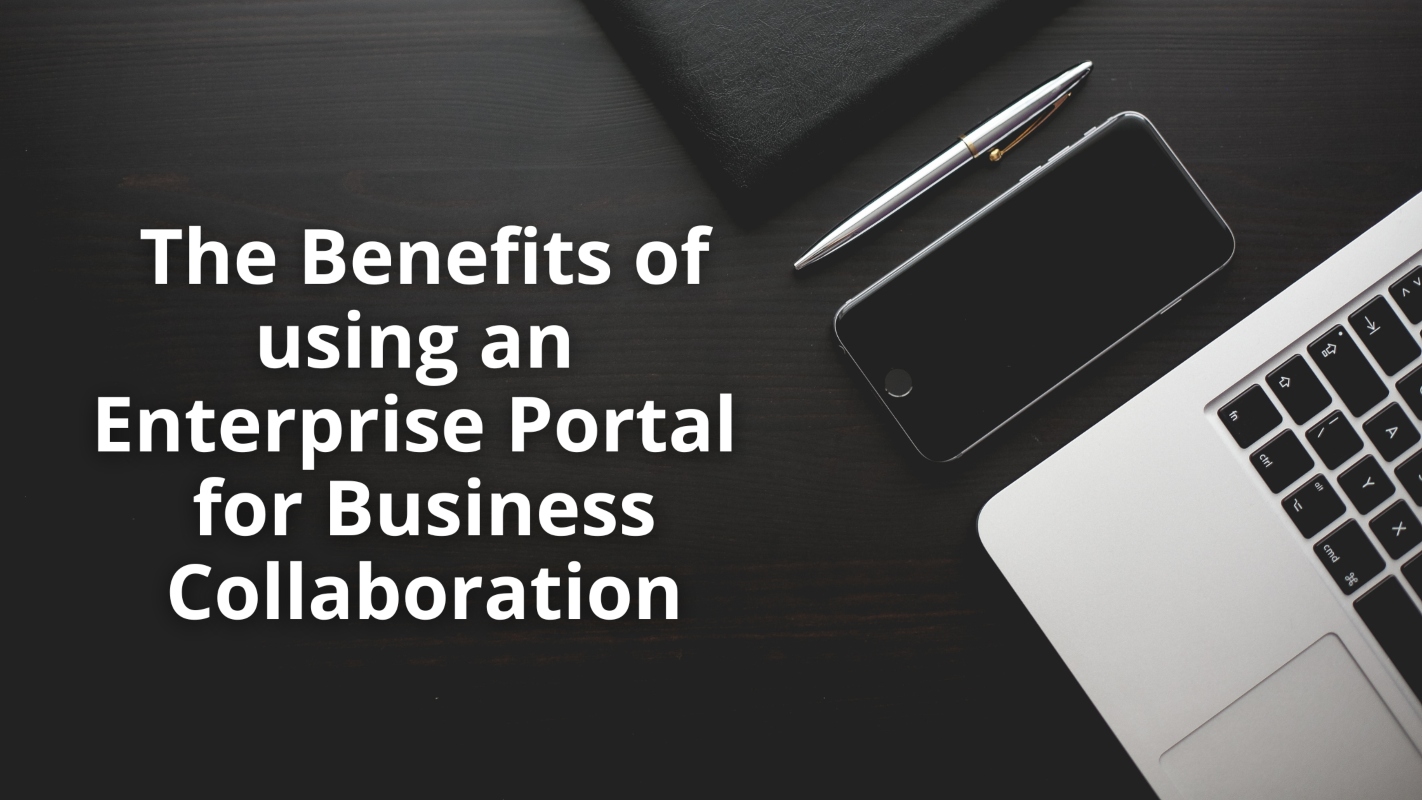In today’s fast-paced business world, effective collaboration among employees, partners and customers is paramount for success. Enterprise portals provide this centralized location where employees can collaborate, share information and access various business applications.
In this blog post we’ll examine the advantages of using an what is enterprise portal for business collaboration.
What is Enterprise Portal?
An enterprise portal is a centralized platform that gives employees access to various tools, resources and information necessary for their work. It’s usually web-based application providing one point of entry to data and communication tools.
Enterprise portals may include features like document management, workflow management, collaboration tools, project management, customer relationship management or business intelligence.
Enterprise portals exist to offer employees a central hub for accessing information and performing job duties more efficiently. By offering one point of entry to various applications and data sources, enterprise portals reduce the need for employees to switch between different applications, leading to improved productivity levels as well as enhanced collaboration.
6 Different Types of Enterprise Portals

Enterprise portals come in many forms and sizes to meet varying business needs and goals.
1. Informational Portals
Informational portals provide employees with access to both internal and external information resources, such as news articles, research papers, and market reports. Organizations often utilize these portals for disseminating data across different departments or teams.
2. Collaborative Portals
These portals offer employees the tools and resources to collaborate and work on projects together. These collaborative platforms typically provide features like document management, messaging, video conferencing and project management.
3. Employee Self-Service Portals
Employee self-service portals provide employees with personal data such as pay stubs, benefits information and time off requests.
Also, employee self-service portals can reduce HR departments’ workload by empowering workers to manage their own data more effectively.
4. Business Process Portals
These portals offer a platform to manage business processes such as purchasing, supply chain management and project management. Such portals may feature workflow automation, approval processes and integration with other enterprise applications.
5. Customer Portals
Customer portals provide customers with convenient access to a range of information and services, such as order tracking, product details, and customer support.
Organizations can use customer portals to improve customer satisfaction while cutting down on support expenses.
6. Partner Portals
Partner and supplier portals offer partners and suppliers access to essential information and resources, such as product catalogs, pricing details, and order management systems. By using partner portals, organizations can streamline their supply chains and enhance collaboration with partners.
6 Benefits of Using An Enterprise Portal For Business Collaboration
Collaboration is now more essential than ever in now highly competitive business world. But, it can be challenging when employees work from different place and use different devices.
To address these obstacles, many companies are turning to enterprise portals for improved communication, increased productivity, better decision-making capabilities and superior customer experiences. In this blog we’ll look at the advantages of using an enterprise portal for business collaboration.
An enterprise portal is a centralized platform that gives employees access to various tools, resources and information necessary for their job. It’s web-based application provides one point of entry to data and communication tools.
Business collaboration is now more important than ever in today’s competitive business landscape; enterprise portals offer efficient yet effective methods of achieving this objective.
1. Improved Communication Infrastructure
Communication is essential for business collaboration. Enterprise portals provide a centralized platform for employees to communicate with each other, breaking down communication silos and increasing collaboration.
Furthermore, it reduces costs associated with multiple communication tools by eliminating the need for them all at once. Enterprise portals enable employees to efficiently collaborate, share files, and discuss ideas in real-time – ultimately increasing productivity levels.
2. Increased Productivity
Enterprise portals simplify workflows by giving employees access to centralized information, tools, and resources. It eliminates the need to switch between multiple applications, saving time on administrative tasks.
Plus, portals offer time-saving features like automated workflows which increase productivity by eliminating manual steps. With centralized data at their fingertips, employees are better able to make informed decisions quickly and efficiently.
3. Improved Decision Making Ability
Real-time data is critical for making informed decisions. Enterprise portals give employees that ability to collaborate and make data-driven choices, thanks to a centralized platform that facilitates collaboration on projects and idea sharing – ultimately leading to improved decision making.
Collaborative decision making helps individuals understand different perspectives and produces more creative solutions.
4. Enhance Security
Enterprise portals provide controlled access to information, enhance data governance, and bolster data protection.
Companies can exercise more control over sensitive data access while reducing the risk of breaches. Moreover, enterprise portals feature audit trails which track who accessed specific data when; providing better visibility into and oversight over data usage.
5. Enhance Customer Experience
Aiming for superior customer experience continues to be a top priority in 2018. Enterprise portals improve customer service by giving employees access to centralized customer data.
This empowers employees to offer tailored experiences for customers, which in turn leads to increased satisfaction levels. Furthermore, enterprise portals facilitate efficient customer relationship management – helping companies foster healthy connections with their clients.
6. Cost Savings
Employing an enterprise portal provides cost savings in several areas. It reduces hardware and software expenses by eliminating the need for multiple applications.
Moreover, IT staff costs are reduced through a centralized platform that requires less upkeep. Using an enterprise portal not only reduces overall expenditures but also increases efficiency levels.
Conclusion
Utilizing an enterprise portal for business collaboration offers numerous advantages. It improves communication, boosts productivity, facilitates decision-making, provides better customer experiences, strengthens security measures and saves companies money on costs.
Companies that utilize enterprise portals can streamline workflows, make informed choices and foster collaboration more effectively. To reap these rewards fully, companies should seriously consider implementing one in their organization.
Enterprise portals offer a convenient and efficient solution for business collaboration. By improving communication, increasing productivity, streamlining decision-making processes, increasing security levels and providing better customer experiences through one centralized platform for employees to work together more efficiently, enterprises are able to streamline workflows, make informed decisions quickly, and foster greater teamwork. Companies using enterprise portals will reap many rewards from using these tools.
Read Also:
- B2B eCommerce Software For Enterprise: 101
- The Office 365 Collaboration Tools: How It Works?
- Top 8 Benefits of Development & Collaboration Software
Author Bio: Dhvanil Reshamwala is the co-founder and Director of Aixtor Technologies, a Liferay partner company specializing in Digital Experience solutions, Intranet portals and digital experience platforms. With expertise in providing consulting, architecture, implementation, integration and support for Digital Experience solutions; Dhvanil has been crucial in establishing Aixtor as a key player within our industry.
















